Moderate overlap front: original test
Rating applies to 2006-10 models built after September 2005
Tested vehicle: 2006 Kia Optima LX 4-door
The Kia Optima was redesigned during the 2006 model year. It no longer shares its body structure with the Hyundai Sonata, which was also redesigned for 2006.
All 2006-10 manufactured after September 2005 are redesigned (note: information about when a specific vehicle was manufactured is on the certification label typically affixed to the car on or near the driver door). 2006 Optima models manufactured in Sept. 2005 or earlier share the previous design with 2001-05 models.
| Evaluation criteria | Rating |
|---|---|
| Overall evaluation | |
| Structure and safety cage | |
| Driver injury measures | |
| Head/neck | |
| Chest | |
| Leg/foot, left | |
| Leg/foot, right | |
| Driver restraints and dummy kinematics | |

Action shot taken during the frontal offset crash test.
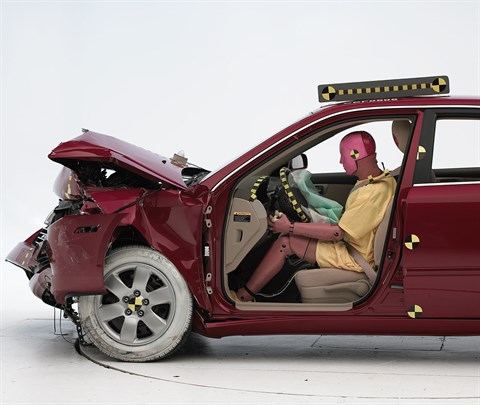
The dummy's position in relation to the steering wheel and instrument panel after the crash test indicates that the driver's survival space was maintained well.
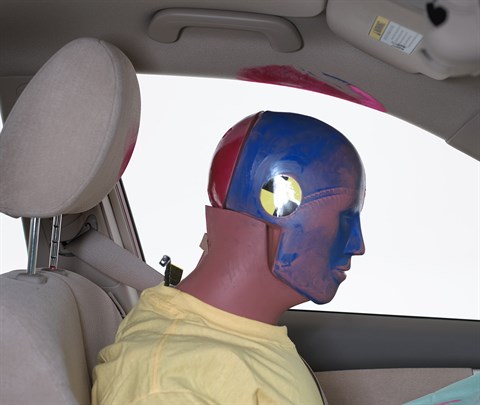
Smeared greasepaint indicates where the dummy's head hit the roof rail during rebound. Head acceleration from this hit was low.

Forces on the lower right leg were high enough to indicate the possibility of injuries.
Side: original test
Rating applies to 2006-10 models built after June 2006
Tested vehicle: 2008 Kia Optima LX 4-door with standard front and rear head curtain airbags and standard front seat-mounted torso airbags
The Kia Optima was redesigned during the 2006 model year. It no longer shares its body structure with the Hyundai Sonata, which was also redesigned for 2006.
Beginning with 2006 models manufactured after June 2006, design changes were made to the rear door structure and trim to improve occupant protection in side impact crashes (note: information about when a specific vehicle was manufactured is on the certification label typically affixed to the car on or near the driver door).
| Evaluation criteria | Rating |
|---|---|
| Overall evaluation | |
| Structure and safety cage | |
| Driver injury measures | |
| Head/neck | |
| Torso | |
| Pelvis/leg | |
| Driver head protection | |
| Rear passenger injury measures | |
| Head/neck | |
| Torso | |
| Pelvis/leg | |
| Rear passenger head protection | |
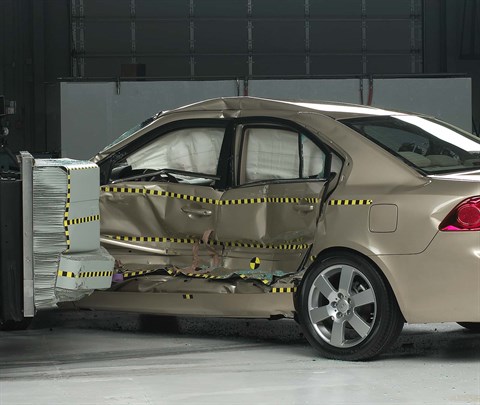
View of the vehicle and barrier just after the crash test.
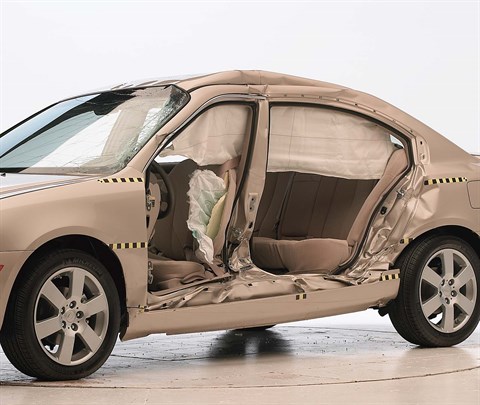
View of the vehicle after the crash with doors removed, showing the side airbags and damage to the occupant compartment.
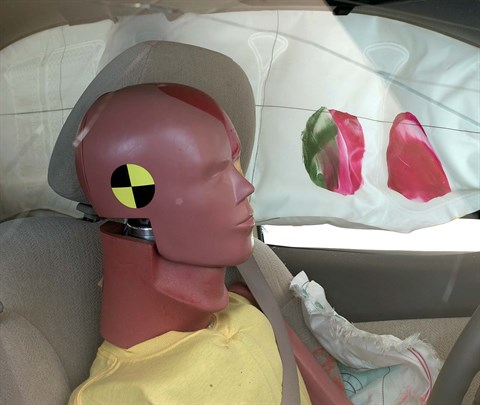
Smeared greasepaint shows where the driver dummy's head was protected from being hit by hard structures by the side curtain airbag.
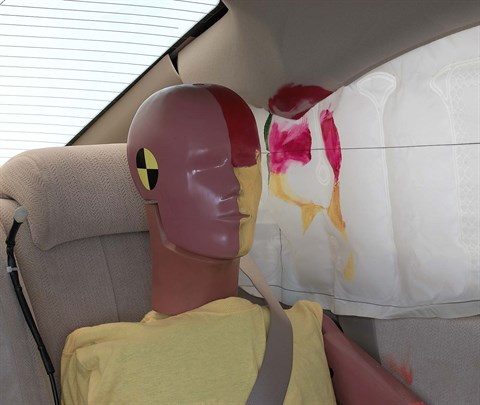
Smeared greasepaint shows where the rear passenger dummy’s head was protected by the side airbag.
Roof strength
Rating applies to 2006-10 models built after September 2005
Tested vehicle: 2009 Kia Optima LX 4-door
| Overall evaluation | |
|---|---|
| Curb weight | 3,203 lbs |
| Peak force | 9,998 lbs |
| Strength-to-weight ratio | 3.12 |
Head restraints & seats
Seat type: Manual cloth seats AHR built after Sept 2005
| Overall evaluation | |
|---|---|
| Dynamic rating | |
| Seat/head restraint geometry |
About the head restraint & seat test
Currently, IIHS tests apply only to front seats.
